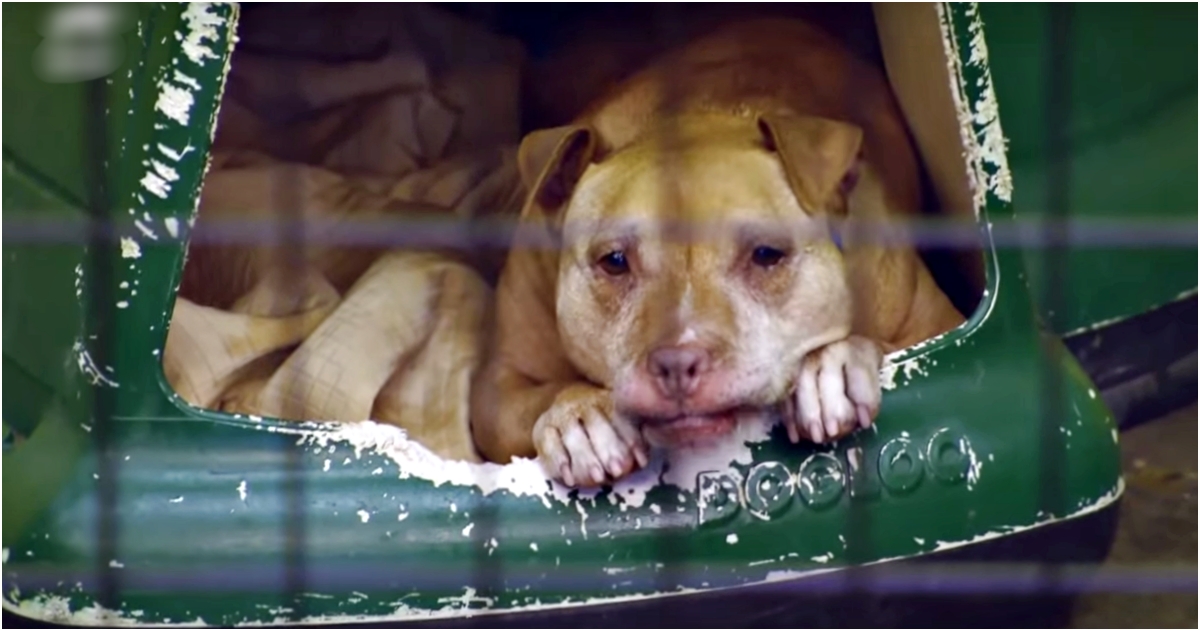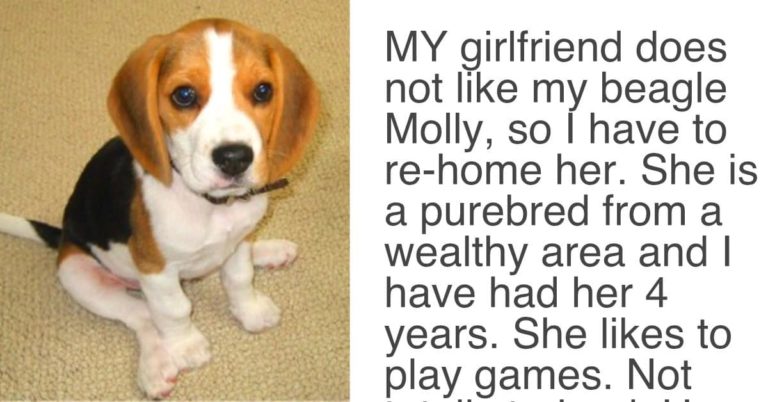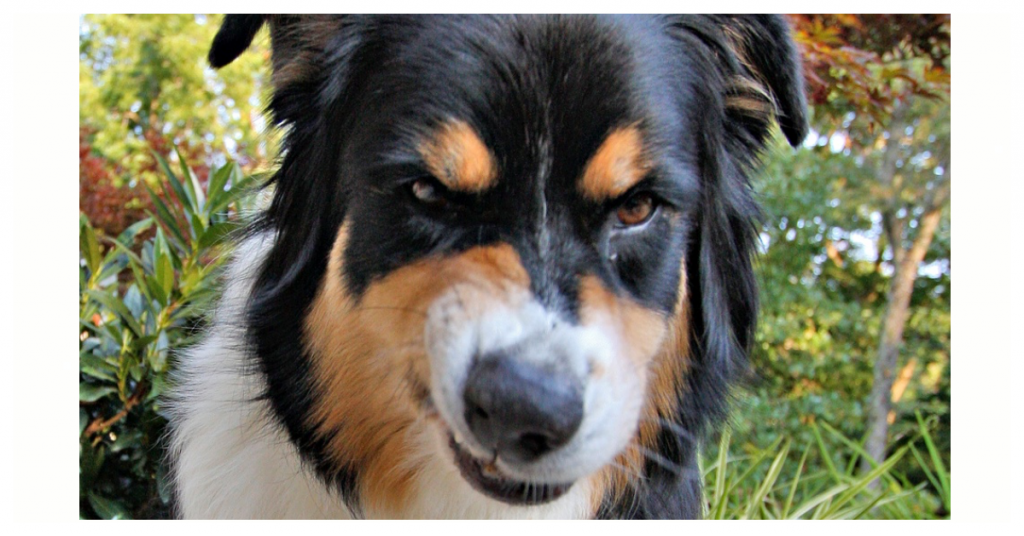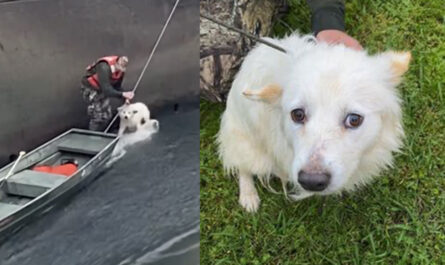Countless deserving dogs wait for their forever family at shelters, rescues and foster homes all across the world. Sadly, some never find a place to call home.
One such dog was likely going to spend her entire life at the Villalobos rescue center run by Tia Torres and her amazing family.
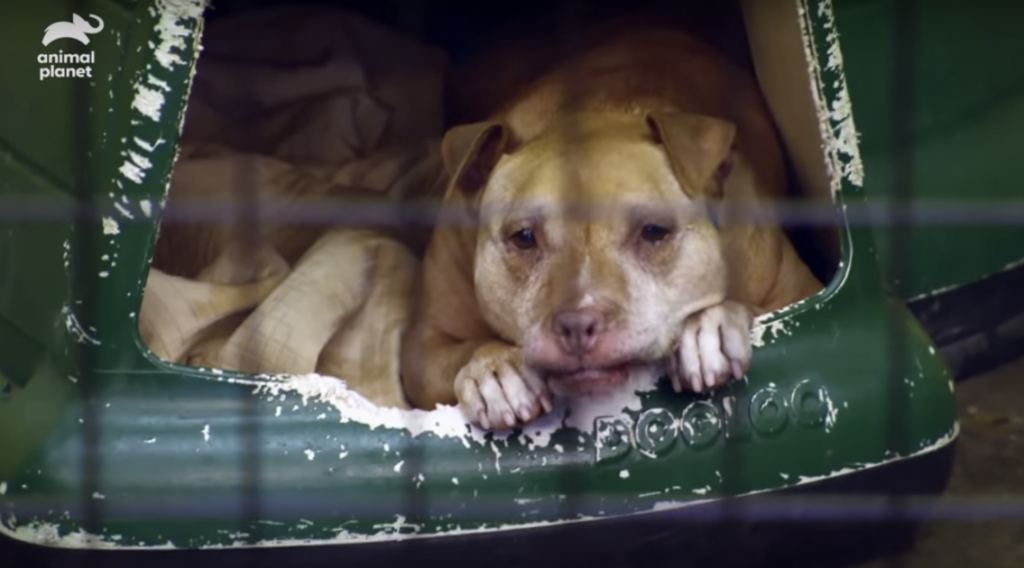
 Source: Animal Planet/Youtube
Source: Animal Planet/Youtube
Summer, a senior dog at Villalobos, has been with the Torres family longer than any other dog at their facility.
Tia pretty much gave up hope that Summer would have ever her happily ever after.
The Torres family did their best to accommodate the sweet pooch and have given her the love and attention she deserves.
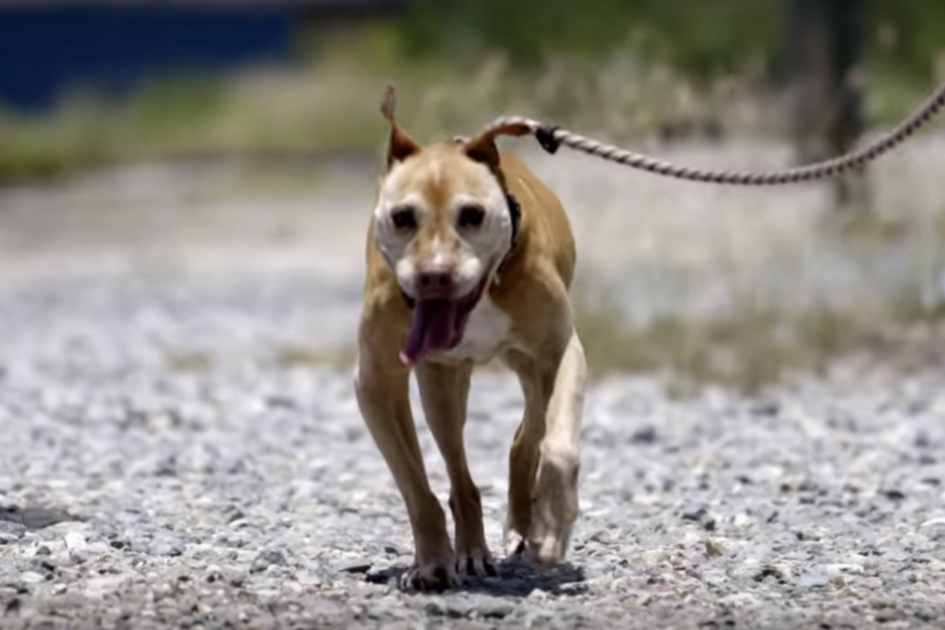
 Source: Animal Planet/Youtube
Source: Animal Planet/Youtube
Tia says, “She and my kids basically grew up together.” That’s how long Summer has been at Villalobos. Since 8 weeks old, Summer has lived at the rescue center.
She is now getting on in age. It breaks Tia’s heart that no one ever stepped up to take the sweet girl in.
“Through no fault of her own, she’s still here. She got overlooked,” Tia says in the video below. At this point, Summer’s age is affecting her physically.
She has bad arthritis, so bad in fact that her legs are awkwardly bent. She moves a bit slower. But mentally, she is a happy, grateful dog.
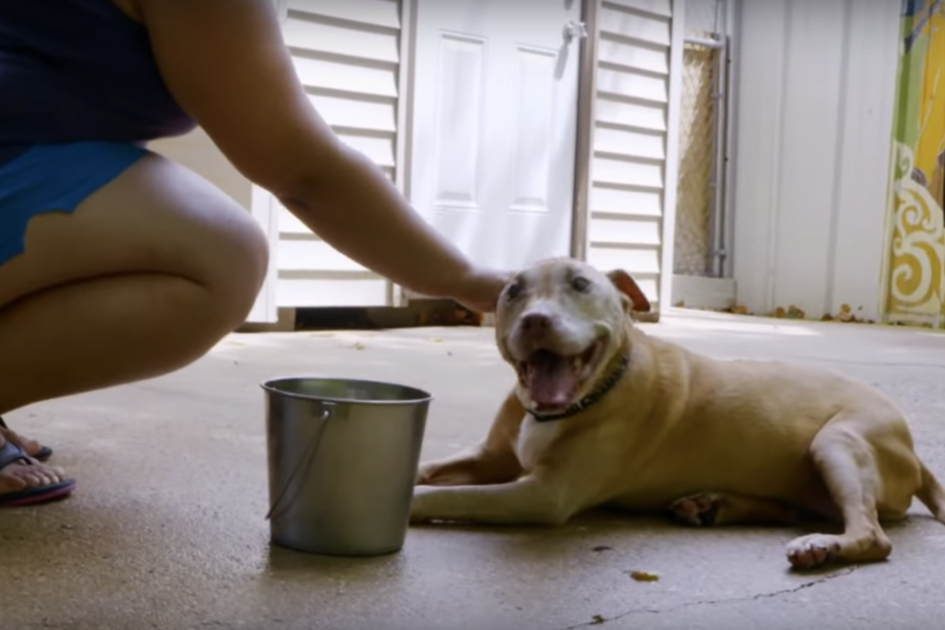
 Source: Animal Planet/Youtube
Source: Animal Planet/Youtube
There are many canine residents at the rescue center because the Torres family doesn’t have the heart to turn any dog away.
As adopters come in looking for the perfect companion, Tia and her family try to listen to what they are looking for.
The family also learns about their homes, and match them up appropriately. They’re usually given several dogs to choose from.
The families then meet the ‘candidates’ and pick the one that best suits them. Despite being an option many times for adopters, Summer was never chosen.
Then, miraculously, an application came in specifically for Summer.
Eileen, the potential adopter, saw Summer on the Villalobos senior page, and knew instantly that Summer belonged with her.
The Torres family couldn’t wait for Eileen to come and meet the deserving dog.
At the center, Summer slowly walks into room, her age obviously showing. But this doesn’t deter Eileen. She gets onto the floor, at Summer’s level, to say hi.
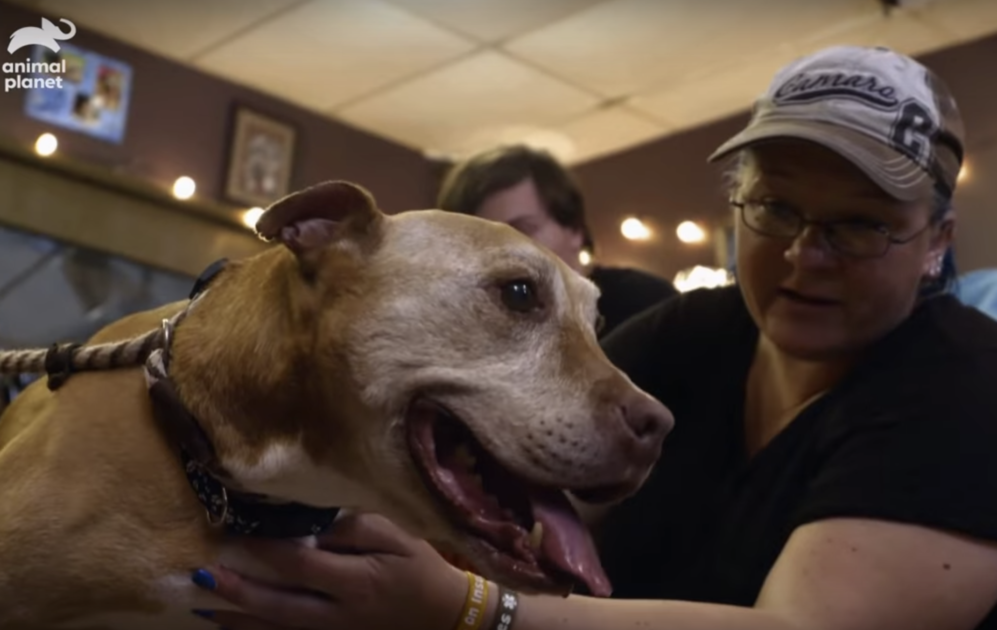
 Source: Animal Planet/Youtube
Source: Animal Planet/Youtube
Summer’s tail begins to wag. It’s the sweetest thing to see! The Torres family is always upfront and fair to all the adopters and explains that with Summer’s advanced age and health, they doubt she will make it a full year. Would this deter Eileen?
No.
Eileen simply says: “She needs us.”
Eileen then explains that if she didn’t adopt Summer and found out she passed away while at the center, never having the opportunity to be in a home, it would break her heart. The next step for Eileen was a no-brainer.
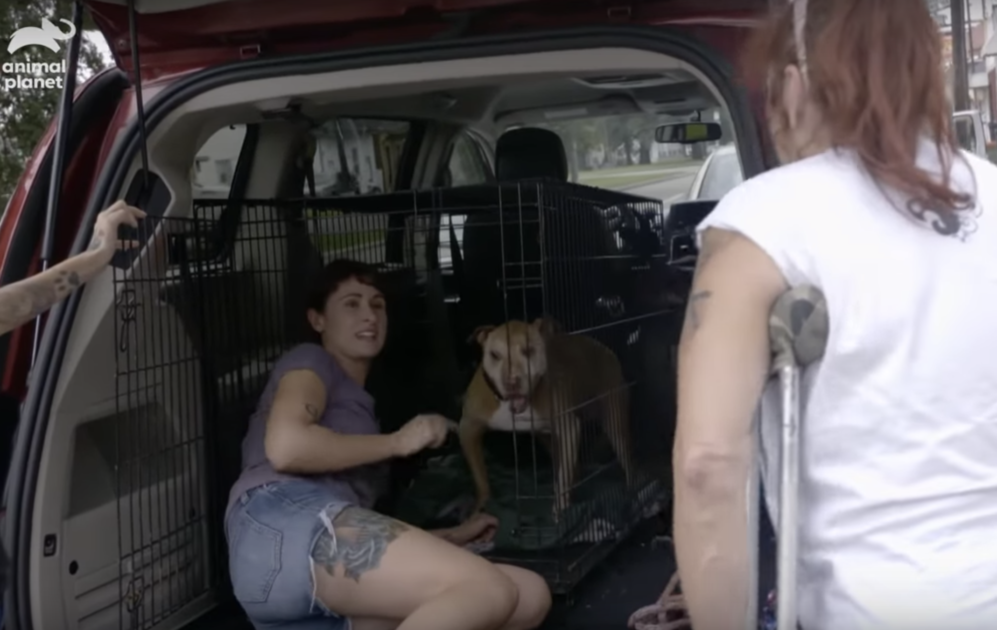
 Source: Animal Planet/Youtube
Source: Animal Planet/Youtube
Watch the video below to see what happens next! And please remember, ALL dogs deserve a forever home. No matter their age!
Please ‘SHARE’ to pass on this story to a friend or family member
Story: Man’s About To Return Shelter Dog When He Reads Previous Owner’s Note


A man had finally settled into his new town, but something still felt missing from his life. He thought getting a companion in the form of a shelter dog might help. So he did just that. He went to the shelter where a black Lab named Reggie needed a home. But they didn’t hit it off right away.
The man gave it two weeks (the amount of time the shelter said it may take for the dog to adjust to his new home), but it just wasn’t working out. Maybe it was the fact he was also trying to adjust to a new situation. Maybe they were too much alike. But then the man started going through Reggie’s stuff, and that’s when he was reminded of a letter the previous owner had left with the dog. That’s what would end up changing their lives dramatically.








What an amazingly beautiful story. It’s all going to work out for Tank and his new owner. 🙂
You’ve read this far… you need to watch this short BEAUTIFUL video clip.. It will touch your HEART! Enjoy!
https://www.youtube.com/watch?v=8tiqOrytYpI
[h/t Tickld]
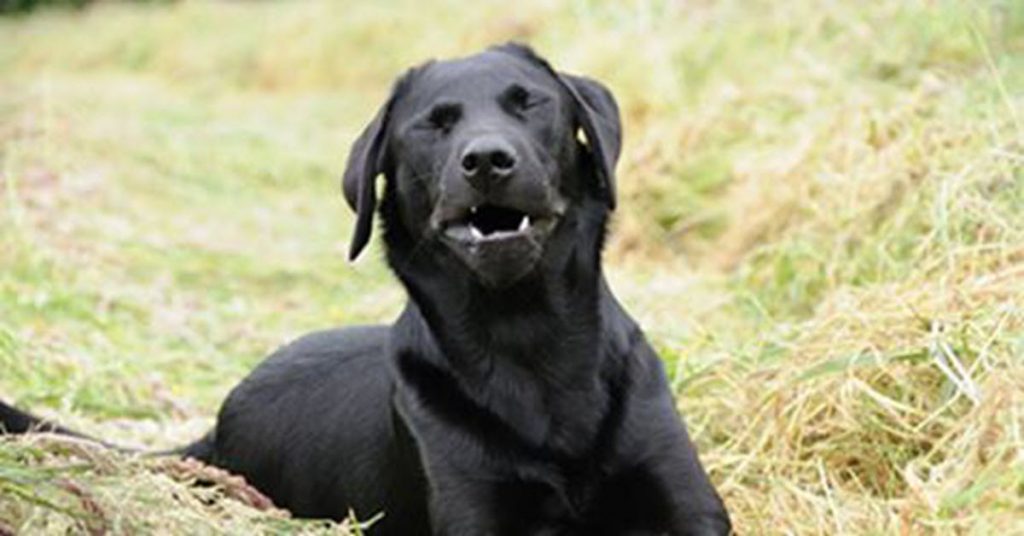

Does this sound familiar? Your dog suddenly starts making loud snorting sounds—over and over again, in quick succession.
Do you start wondering, did they swallow something they shouldn’t have? Can they breathe?!
Chances are, you’re experiencing the infamous “reverse sneeze.”
Veterinarians often see dogs whose owners rushed them in for an emergency appointment after finding them standing with their elbows apart, head pulled back, and eyes bulging as they snort or gasp repeatedly.
Yet for the vast majority of these dogs, a vet visit was unnecessary.
Reverse sneezing looks and sounds scary the first time you encounter it. However, it’s a fairly common and harmless respiratory event for dogs.
Read on to learn how to identify reverse sneezing, what causes it, and how to tell the difference between a harmless reverse sneeze and something else.
What is reverse sneezing?
A reverse sneeze is pretty much what it sounds like: a sneeze that happens in reverse! The above video is a good example of what it looks and sounds like.
In a regular sneeze, air is rapidly pushed out through the nose. In a reverse sneeze, air is rapidly, and noisily, pulled in through the nose.
It occurs in spasms lasting anywhere from a few seconds up to a minute and sounds like snorting, snuffling, and even gagging. See the above video for an example.
Because of the sounds their dogs make while reverse sneezing, many people mistakenly think their dog is choking. However, a reverse sneeze is almost as normal and harmless as a regular sneeze.
What causes reverse sneezing?
There’s no single cause for a reverse sneeze. Like regular sneezing, it’s often triggered by an irritation or inflammation in the nose, throat, or sinuses.
It often occurs when dogs wake up from a nap, or after eating, when their breathing pattern may have rapidly changed. It’s also caused by irritants in the airway—anything from dust to an inhaled hair!
Some dogs experience more frequent reverse sneezing in springtime when the air is full of pollen and other allergens.
Others reverse sneeze more in the winter, when sudden temperature changes between outdoors and indoors cause the nasal passages to contract.
Another common cause of reverse sneezing is pressure on the throat and neck. A too-tight collar, or straining against the leash, can irritate the throat and lead to a reverse sneeze. That’s just one more reason to consider a harness for your dog.
Finally, some dogs reverse sneeze after exercise, or when they’re overexcited. This is particularly common among brachycephalic, or short-nosed, breeds like pugs and bulldogs.
When they get worked up, they may inhale their elongated soft palates into the throat, triggering an episode of reverse sneezing.
How to end a reverse sneezing episode
Reverse sneezing is super-common, and it won’t hurt your dog. However, some dogs become anxious during a reverse sneezing episode, and a lengthy episode may be uncomfortable.
You can help your dog recover from a reverse sneezing episode by remaining calm yourself. If you get anxious, your dog’s anxiety will increase, too. So, stay calm, and show your dog there’s nothing to panic about.
If your dog is experiencing a particularly long episode of reverse sneezing, you may be able to ease or end the episode by:
- Gently massaging your dog’s throat
- Briefly covering their nostrils, which will cause them to swallow and potentially stop sneezing
- Depressing their tongue with your hand to help open airways
- Some vets suggest gently blowing in your dog’s face
In the vast majority of cases, there’s no need to intervene. Reverse sneezing doesn’t last long, and your dog will be perfectly normal after it stops.
When you should go to the vet
https://www.instagram.com/p/BfoSLvBAsDL/?utm_source=ig_embed
As mentioned, reverse sneezing rarely requires veterinary treatment. As soon as the sneezing episode stops, the situation is resolved. However, if episodes increase in frequency or duration, you should call the vet just in case.
You should also seek treatment if your dog’s reverse sneezing is accompanied by other respiratory symptoms or if they have any unusual discharge from their nose.
Occasionally, chronic reverse sneezing can be a symptom of more serious issues. These include nasal mites, foreign objects in the airway, respiratory infections, and tracheal collapse.
If you’re concerned about the intensity of your dog’s reverse sneezing, take a video to show the vet. They’ll be able to determine potential causes.
Most dogs experience episodes of reverse sneezing at some point in their lives. For the vast majority of dogs, it’s a common, temporary, harmless reaction with no lasting aftereffects.
Of course, it still sounds unsettling to our human ears! But now that you know what reverse sneezing is, you’ll be less likely to make an unnecessary vet visit.
https://www.youtube.com/watch?v=OMwbkggmZwU
Girlfriend Gives Partner An Ultimatum, Demands Either The Dog Goes Or She Goes
Science Discovers That Dogs Can Sense ‘Bad People’
